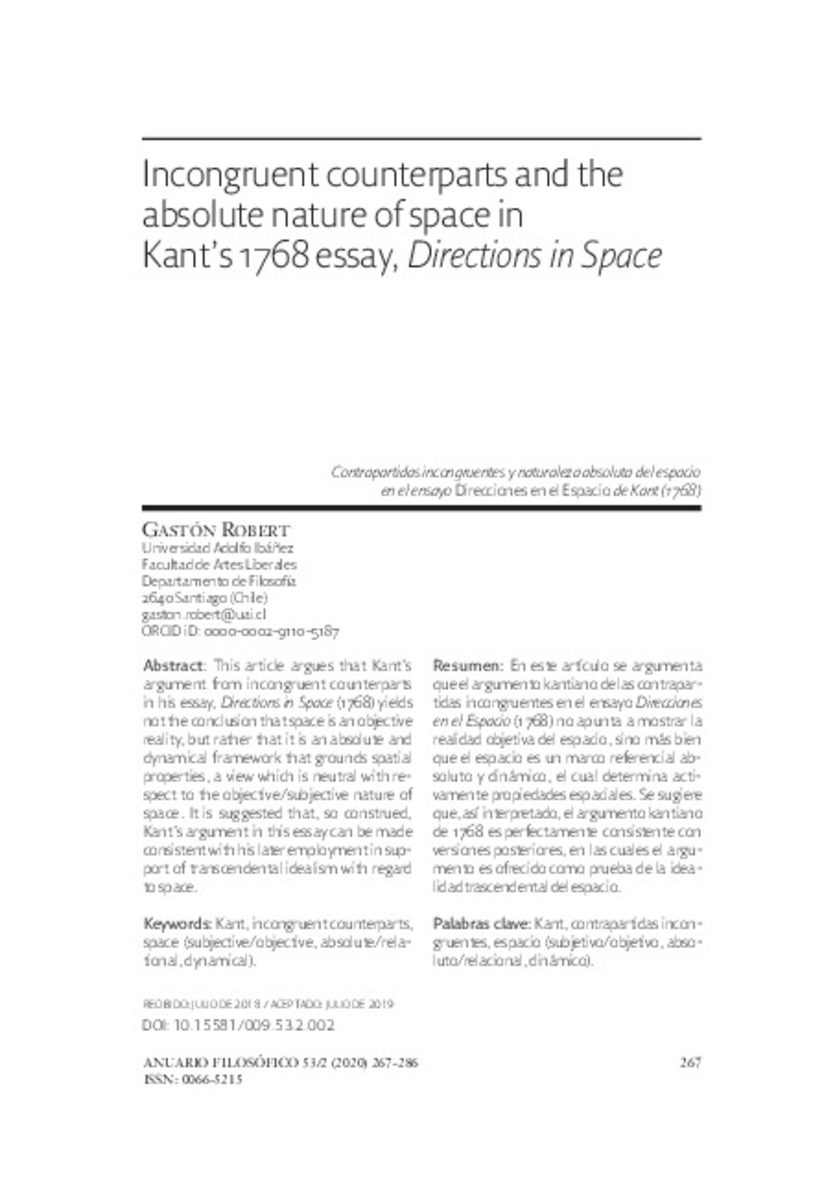Full metadata record
| DC Field | Value | Language |
|---|---|---|
| dc.creator | Robert, G. (Gaston) | - |
| dc.date.accessioned | 2020-06-23 | - |
| dc.date.accessioned | 2022-08-22T12:04:50Z | - |
| dc.date.available | 2022-08-22T12:04:50Z | - |
| dc.date.issued | 2020 | - |
| dc.identifier.citation | Robert, G. (Gaston). "Incongruent counterparts and the absolute nature of space in Kant’s 1768 essay, "Directions in Space"". Anuario Filosófico. 53 (2), 2020, 267 - 286 | es |
| dc.identifier.issn | 0066-5215 | - |
| dc.identifier.uri | https://hdl.handle.net/10171/64036 | - |
| dc.description.abstract | This article argues that Kant’s argument from incongruent counterparts in his essay, <em>Directions in Space </em>(1768) yields not the conclusion that space is an objective reality, but rather that it is an absolute and dynamical framework that grounds spatial properties, a view which is neutral with respect to the objective/subjective nature of space. It is suggested that, so construed, Kant’s argument in this essay can be made consistent with his later employment in support of transcendental idealism with regard to space. | en_US |
| dc.language.iso | eng | - |
| dc.publisher | Servicio de Publicaciones de la Universidad de Navarra | es_ES |
| dc.rights | info:eu-repo/semantics/openAccess | es_ES |
| dc.title | Incongruent counterparts and the absolute nature of space in Kant’s 1768 essay, "Directions in Space" | en_US |
| dc.type | info:eu-repo/semantics/article | es_ES |
| dc.identifier.doi | 10.15581/009.53.2.002 | - |
| dadun.citation.endingPage | 286 | - |
| dadun.citation.number | 2 | - |
| dadun.citation.publicationName | Anuario Filosófico | - |
| dadun.citation.startingPage | 267 | - |
| dadun.citation.volume | 53 | - |
Files in This Item:
Statistics and impact
Items in Dadun are protected by copyright, with all rights reserved, unless otherwise indicated.






